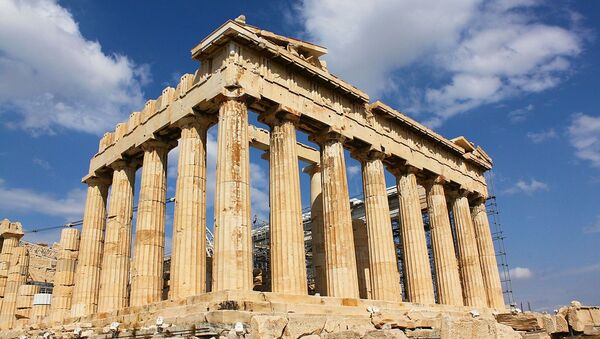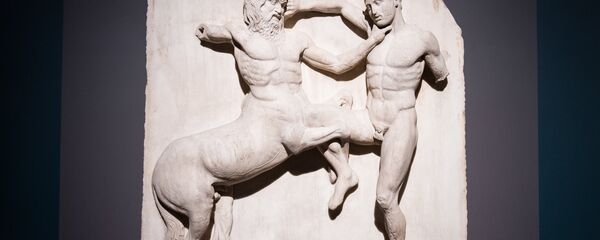Hartwig Fischer, the director of the British Museum, has sparked criticism by suggesting that taking Greek statues from the Parthenon in the 19th century may be perceived as a "creative act", according to the report by The Guardian.
Speaking in an interview with Greek newspaper Ta Nea, Fischer ruled out the return of the 2,500-year sculptures to Greece. Athens regards the statues as stolen and desperately wants them back, but the British Museum has repeatedly rejected the demands.
When met with an argument that returning the statues would put them into their original place, Fischer said that the museum offers a "different way to interact" with the marble statues by "posing different questions because the objects are placed in a new context".
"We should appreciate this opportunity", he said. "You could, of course, be saddened by the fact that the original environment has disappeared. When you move a cultural heritage to a museum, you move it outside. However, this shifting is also a creative act".
"Nothing that we admire at the Acropolis Museum was created for the Acropolis Museum. They are close to the original environment, but they have again moved away from it and have been transformed through this act", he said.
Fischer's words have been criticised by George Vardas, secretary of the International Association for Reunification of Parthenon Sculptures.
"Seriously", he tweeted. "What was so creative in the destruction of the temple and looting and pillage of a nation's keys to its ancient history?"
Vardas called it "astonishing historical revisionism and arrogance", adding that "The imperial condescension of the British Museum knows no bounds", The Guardian reports.
Guess it’s time to stop following @britishmuseum since I can’t even slightly agree that illegally plundering artifacts is a “creative act.” 🙃🙃🙃
— Desiree Spitzer 😼 (@CatApocalypse) 28 января 2019 г.
Their possession of things like the Elgin marbles has long been shameful, but to blatantly support thefts like that is gross.
Later in the same interview, Fischer mulled a "loan" of statues to Greece, only in the event Athens recognises the UK as the legitimate owner of the statues.
"The objects in the collection of the British Museum are owned by the museum's commissioners", he said.
Robbing banks usually requires new and unexpected approaches, which might be argued to include at least one "creative act".
— Bert Copying (@BCopying) 28 января 2019 г.
Myrsini Zorba, the Greek culture minister, reacted to his remarks with a statement Saturday, calling Fischer's "legitimate owner" comments "a narrow and cynical managerial mindset".
"It is regrettable to hear this by the director of the British Museum and a well-known art historian. His remarks downgrade cultural heritage from an invaluable universal value to a mere exchange sale".
Sorely tempted to test Hartwig Fischer's ludicrous definition of a "creative act"…so many beautiful shiny artefacts in the British Museum that'd look great in our flat.#elginmarbles#handthemback
— Mid-life Bassist (@andyhgilmour) 28 января 2019 г.
The statues were removed from Greece in the 19th century by Thomas Bruce, the 7th Earl of Elgin. The pieces of art were bought by the state in 1816 for £35,000, considerably below their cost to Elgin (estimated at £75,000), and deposited in the British Museum, where they remain to this day.



